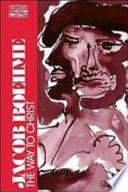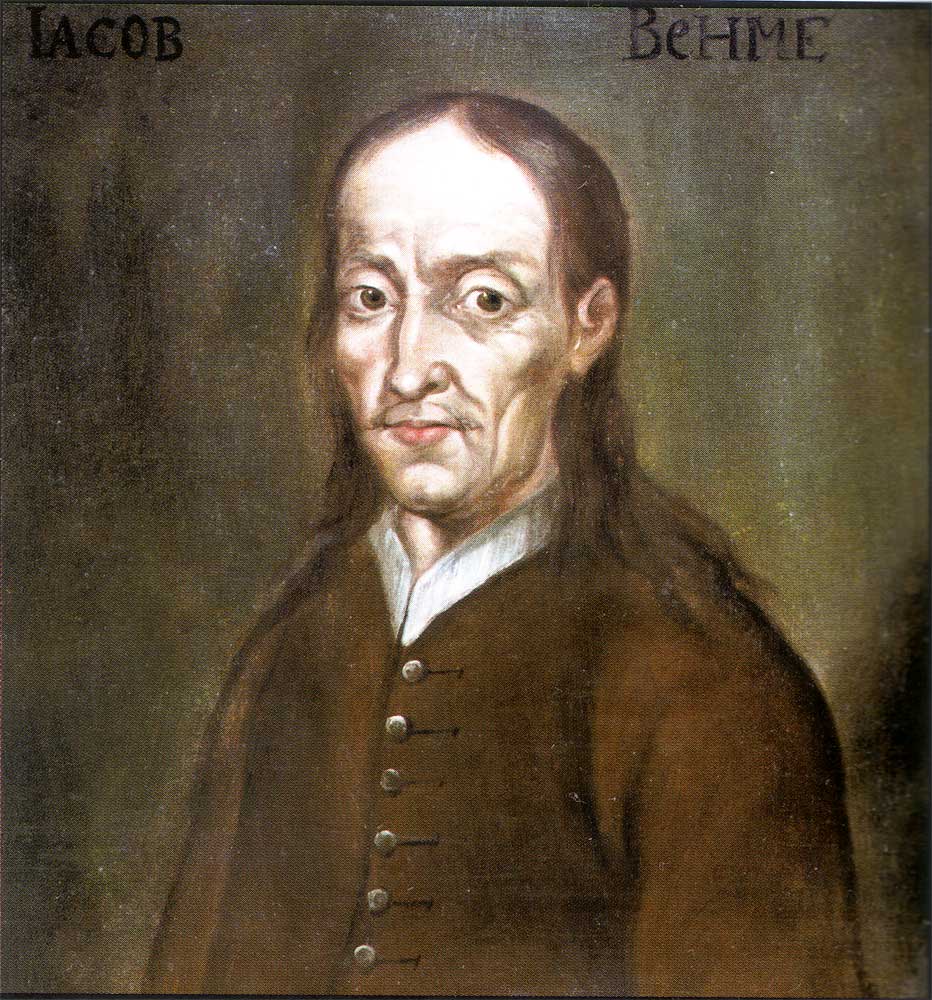Explaining his symbol of the within the human heart, in Libri Apologetici (1730), Book I, as quoted in The Secret Teachings of All Ages (1928) by Manly P. Hall, "The Human Body in Symbolism" http://www.sacred-texts.com/eso/sta/sta17.htm
Context: We men have one book in common which points to God. Each has it within himself, which is the priceless Name of God. Its letters are the flames of His love, which He out of His heart in the priceless Name of Jesus has revealed in us. Read these letters in your hearts and spirits and you have books enough. All the writings of the children of God direct you unto that one book, for therein lie all the treasures of wisdom. … This book is Christ in you.
Works

The Way to Christ
Jakob BöhmeFamous Jakob Böhme Quotes
Writing about Gregorius Richter, chief pastor of Görlitz, who had condemned his writings (2 April 1624), as quoted in Concerning the Three Principles of the Divine Essence (1910), edited by Paul Deussen, Introduction
Context: I must tell you, sir, that yesterday the pharisaical devil was let loose, cursed me and my little book, and condemned the book to the fire. He charged me with shocking vices; with being a scorner of both Church and Sacraments, and with getting drunk daily on brandy, wine, and beer; all of which is untrue; while he himself is a drunken man.
“This is understood by none but the Children of Christ, who have known it by Experience.”
The Gates of the Paradisical Garden of Roses <!-- p. 41 -->
The Way to Christ (1622)
Context: This is understood by none but the Children of Christ, who have known it by Experience.
When Christ the Corner-stone stirreth himself in the extinguished Image of Man, in his hearty Conversion and Repentance, then Virgin Sophia appeareth in the Stirring of the Spirit of Christ in the extinguished Image, in her Virgin's Attire before the Soul; at which the Soul is so amazed and astonished in its Uncleanness, that all its Sins immediately awake in it, and it trembleth before her; for then the Judgement passeth upon the Sins of the Soul, so that it even goeth back in its Unworthiness, being ashamed in the Presence of its fair Love, and entereth into itself, feeling and acknowledging itself utterly unworthy to receive such a Jewel. This is understood by those who are of our Tribe, and have tasted of this Heavenly Gift, and by none else. But the noble Sophia draweth near in the Essence of the Soul, and kisseth it in friendly Manner, and tinctureth its dark Fire with her Rays of Love, and shineth through it with her bright and powerful Influence. Penetrated with the strong Sense and Feeling of which, the Soul skippeth in its Body for great Joy, and in the Strength of this Virgin Love exulteth, and praiseth the great God for his blessed Gift of Grace.
Preface
The Way to Christ (1622)
Context: If thou wilt use these Words aright, and art in good Earnest, thou shalt certainly find the Benefit thereof. But I desire thou mayest be warned, if thou art not in Earnest, not to meddle with the dear Names of God, in and by which the most High Holiness is invoked, moved, and powerfully desired, lest they kindle the Anger of God in thy Soul. For we must not abuse the Holy Names of God. This little Book is only for those that would fain repent, and are in a Desire to begin. Such will find what Manner of Words therein, and whence they are born. Be you herewith commended to the Eternal Goodness and Mercy of God.
